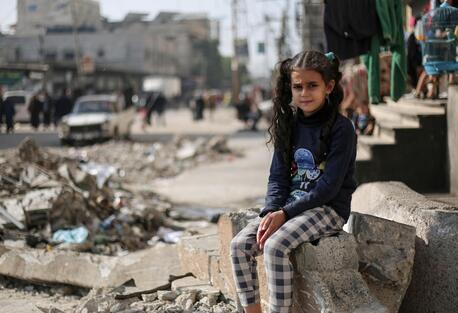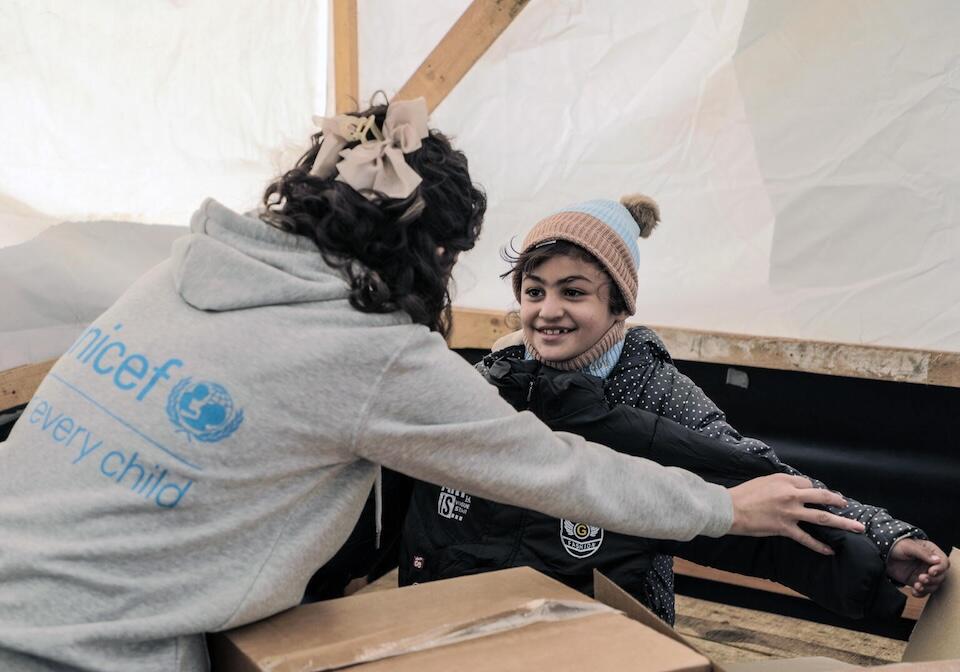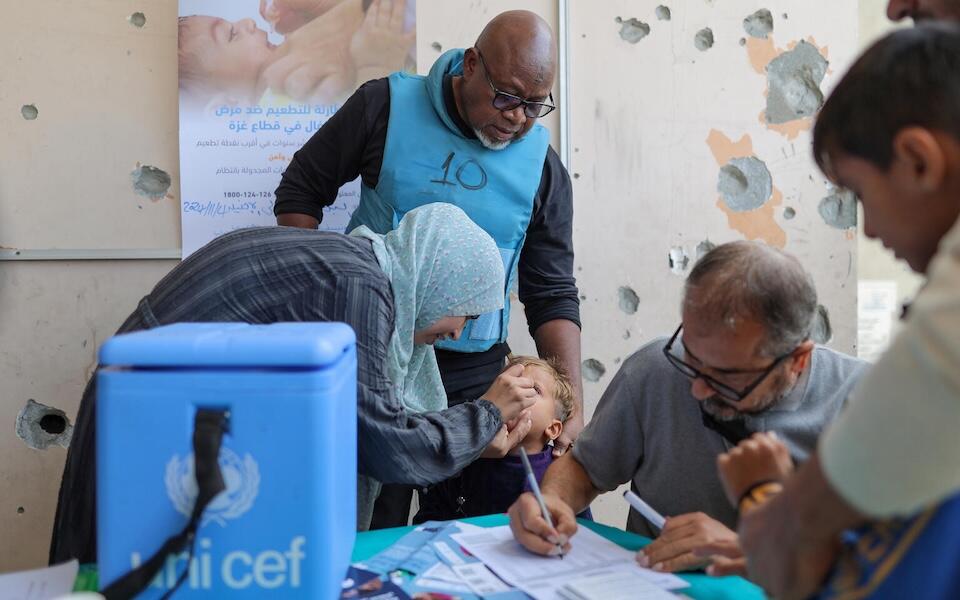
Amid Ceasefire Talks in Gaza, UNICEF Urges Unimpeded Humanitarian Access
“With the collapse of essential services across Gaza, we must act urgently to save lives and help children recover," says UNICEF Executive Director Catherine Russell. UNICEF is ready to ramp up its emergency response. Here's how to help.
After more than a year of bombardment and deprivation, all of Gaza's children are in urgent need of support
UNICEF Executive Director Catherine Russell issued a statement on Jan. 15, 2025 welcoming the announcement of a ceasefire agreement between the parties to the conflict in the Gaza Strip.
"This is long overdue for the children and families of Gaza who have endured more than a year of bombardment and deprivation, and for the hostages in Gaza and their families in Israel who have suffered so much," Russell said.
The war has exacted a horrific toll on Gaza's children, reportedly leaving at least 14,500 dead, thousands more injured, an estimated 17,000 unaccompanied or separated from their parents and nearly 1 million displaced from their homes.
The scale of humanitarian needs is enormous, and UNICEF and partners are ready to scale up our response. — Catherine Russell, UNICEF Executive Director
"The scale of humanitarian needs is enormous, and UNICEF and partners are ready to scale up our response," Russell said.
The ceasefire must "afford humanitarian actors the opportunity to safely roll out the massive response inside the Gaza Strip that is so desperately needed," Russell continued, "including unimpeded access to reach all children and families with essential food and nutrition, health care and psychosocial support, clean water and sanitation, education and learning, as well as cash assistance and the resumption of commercial trucking operations."

Full adherence to the ceasefire is needed to protect the safety of civilians and humanitarian workers
The challenges are enormous. Less than half of Gaza’s 36 hospitals are functional, increasing the risk of infectious disease outbreaks and putting children at risk. Water production is at less than 25 percent capacity. Nearly all of the territory’s 2.1 million people are facing high levels of food insecurity. And 95 percent of Gaza’s school buildings have been damaged or destroyed.
“It is imperative that the parties fully adhere to the ceasefire and allow the necessary level of aid into the Gaza Strip through all reliable entry points," said Russell. "The security environment must also be urgently addressed."

Working together for a better future for all children
Safe humanitarian access will allow UNICEF to increase the screening and treatment of children suffering from malnutrition, facilitate vaccination catch-up for 420,000 children under age 5, and support the prevention of disease outbreaks, including polio, measles and cholera.
“In addition, UNICEF strongly urges the parties to urgently forge a lasting political resolution that prioritizes the rights and well-being of this and future generations of children," said Russell. “The war in Gaza has already cost children so much. We must act now and work together for a better future for all children.”
Help UNICEF reach more children in need. Please donate.
HOW TO HELP
There are many ways to make a difference
War, famine, poverty, natural disasters — threats to the world's children keep coming. But UNICEF won't stop working to keep children healthy and safe.
UNICEF works in over 190 countries and territories — more places than any other children's organization. UNICEF has the world's largest humanitarian warehouse and, when disaster strikes, can get supplies almost anywhere within 72 hours. Constantly innovating, always advocating for a better world for children, UNICEF works to ensure that every child can grow up healthy, educated, protected and respected.
Would you like to help give all children the opportunity to reach their full potential? There are many ways to get involved.





